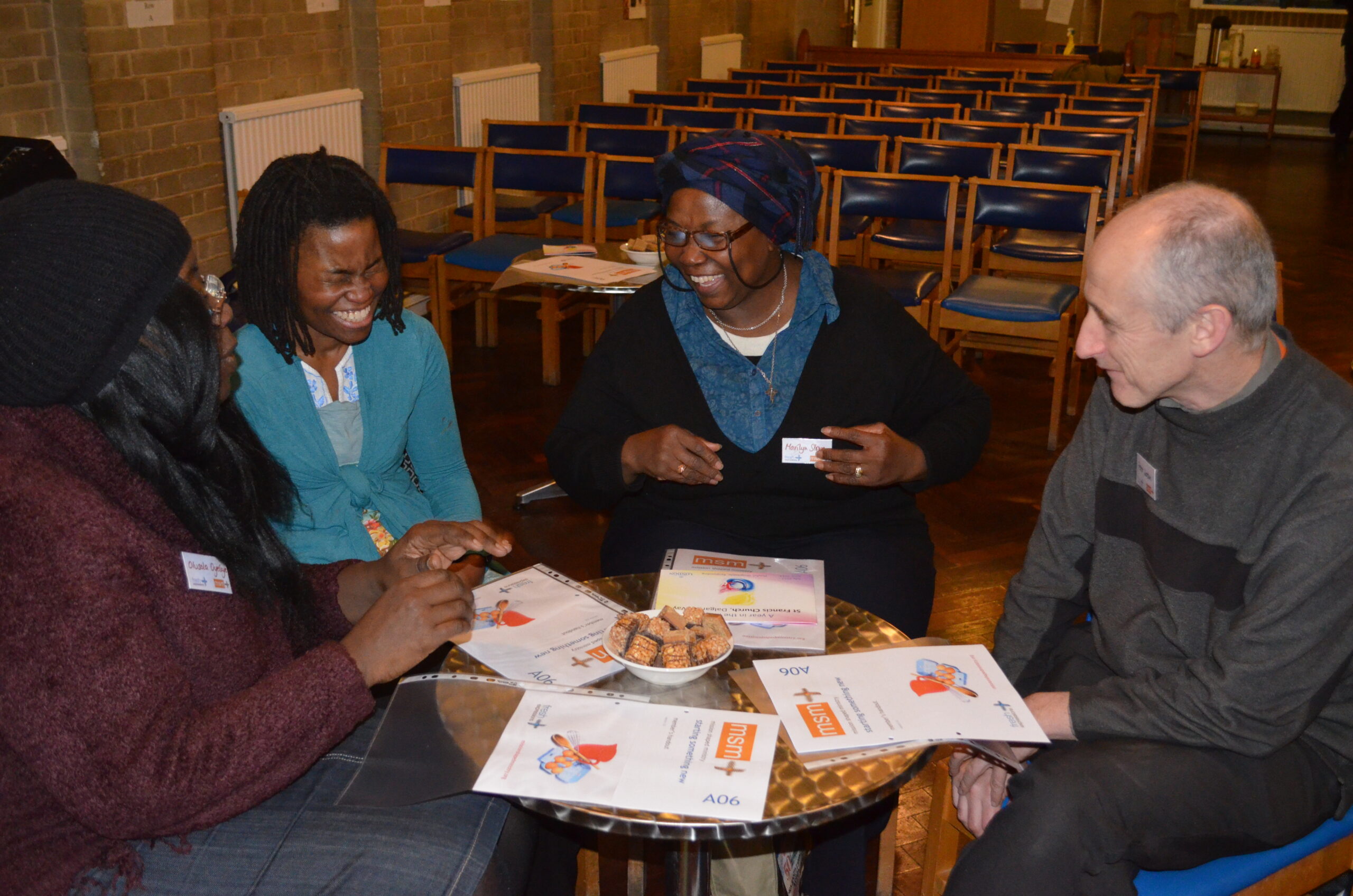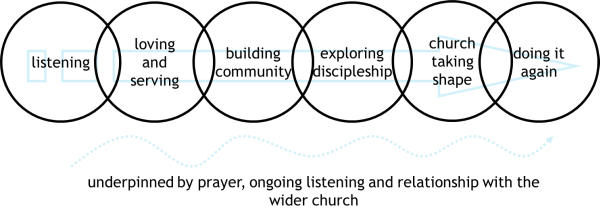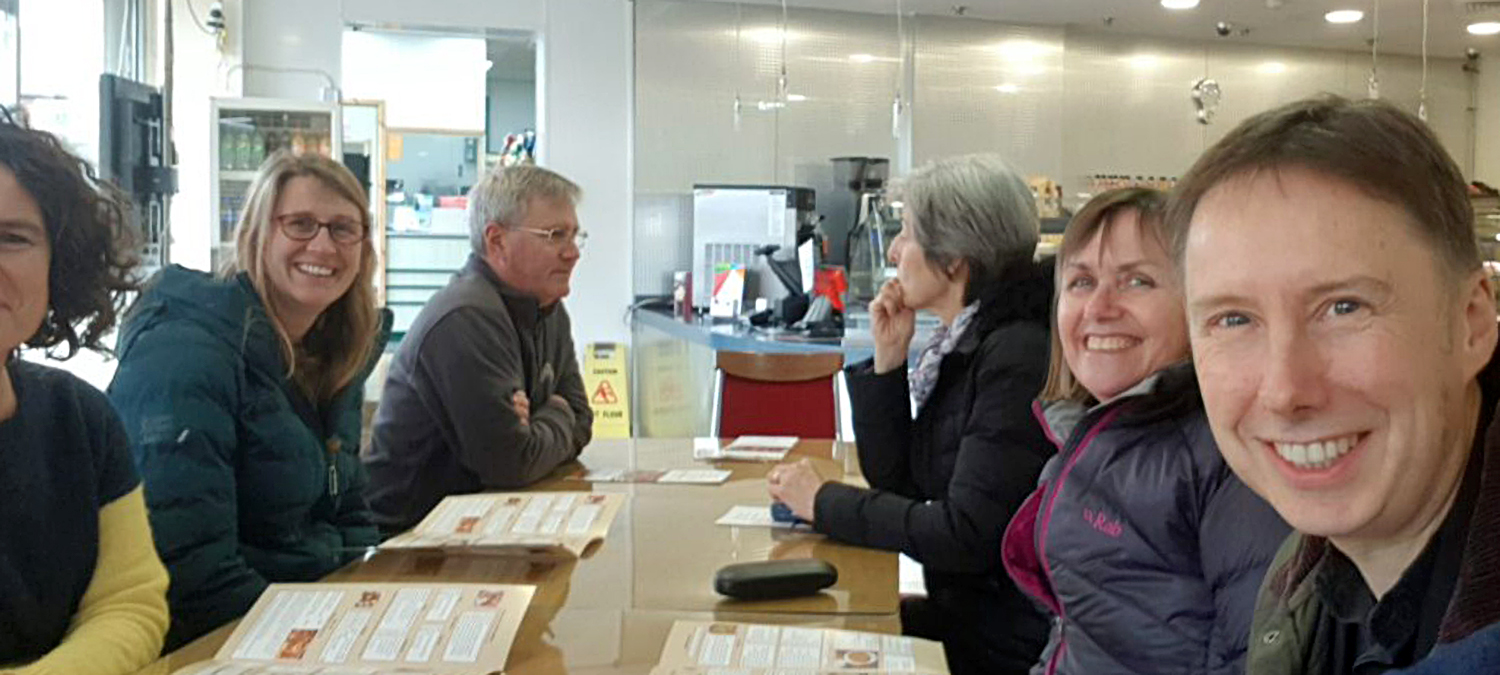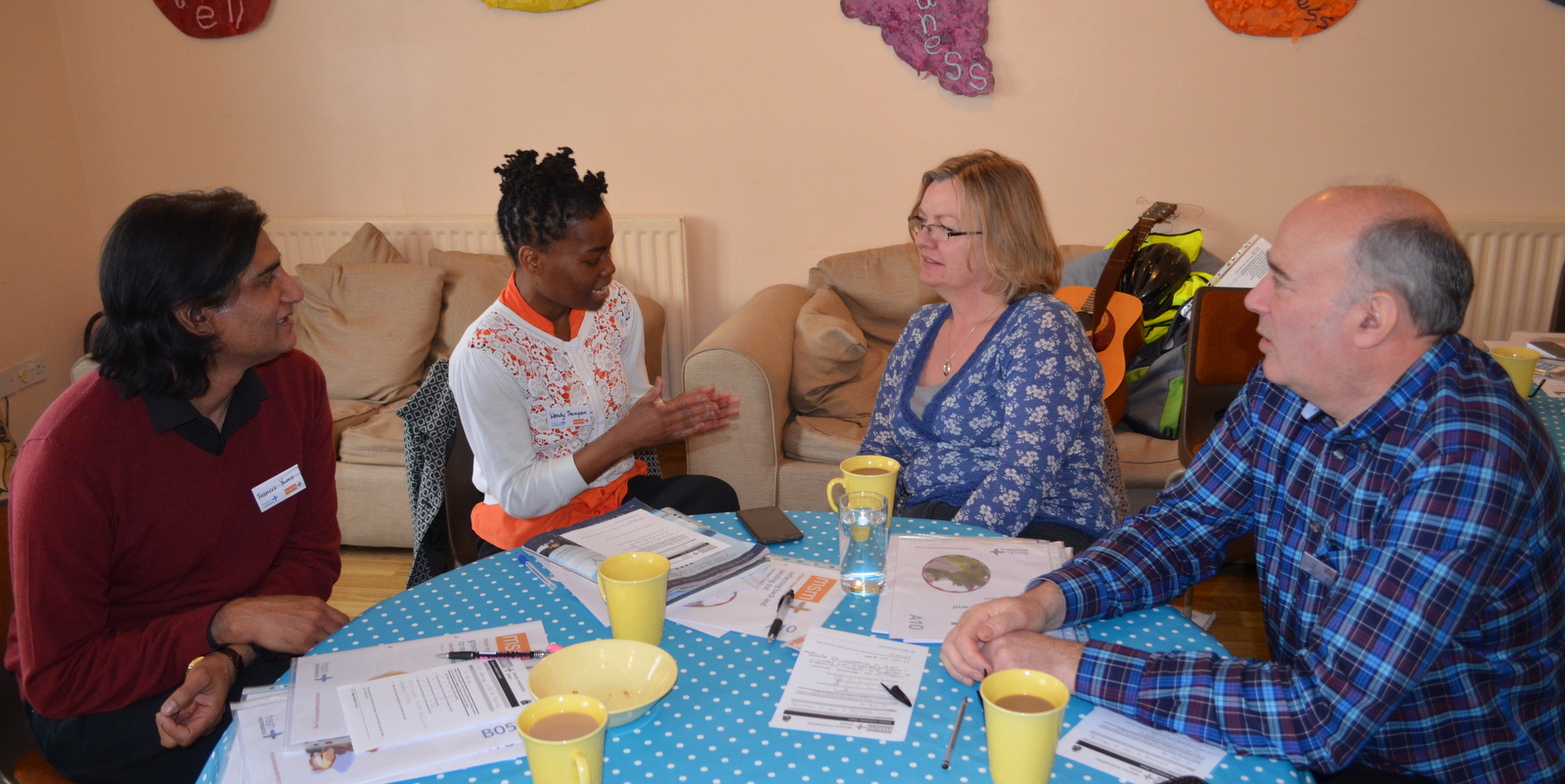If you are a church that is seeking to reach those who don’t know Jesus Christ then you are likely to grapple with the issue of how to connect with your community. How can you, appropriately, share your faith?
What more and more people are finding is that they need to go to where people already are and sit with them, to see how God might be at work and how they might join in.
There are a multitude of ways in which you might start a Fresh Expression of Church (fxC). Here are just a few suggestions.
- Prayer is the undergirding of our listening and our seeking of what God is up to. This takes time and will need to be continued through the whole process.
- Don’t do on your own what you can do in a team. The team doesn’t need to be large (three-quarters of all fxCs in Southwark started with three or fewer people) but a team allows for ideas to be shared.
- Go on a Mission-Shaped Ministry course or one of our other courses led by practitioners, interacting with others who are working out what to do and how to do it.
- Download the free FX Godsend App to your phone or tablet to help you learn how to start and develop an fxC at your own pace from the Android store, Apple store or a web-based version. All these have resources for discussion with others as well.
- Identify people who might have the gift of pioneering in your church and can be trained as a Lay Pioneer.
The picture below shows a typical process of starting an fxC. Notice that it doesn’t rush into a worship service. For an fxC to do more than simply reflect the people starting it, it needs to listen and discern what is appropriate for the people or community it is seeking to reach.
Four things to consider when starting out:
- Listen to what God might be saying. Very often he prompts us out of the corner of our eyes. We need to be aware of what is happening at the periphery of our vision. What are the things we are not concentrating on that God might be speaking to us about?
- Be aware of your context. This is different from other people’s. So, look and listen as to what might be appropriate at this time and in this place. What might work for someone else might not in your different circumstances and context.
- Keep in mind that your tradition has great riches in it. The Catholics in the Church were responsible for much church planting in the 19th century. The evangelicals were very involved in arguing for social justice. So, dig into the wisdom of your tradition and see how this might inform what and how you do things.
- It is very easy to overlook the resources that God has entrusted to us: the people in our church; the people they can reach. We might think that we have little but we can be amazed at what God can do through people we might overlook.
Of course, please do contact Will Cookson, Dean of Fresh Expressions for the Diocese, to talk through some of the ideas, issues or possibilities that you see.
Types of Fresh Expression
There are many different forms of fxC and many are unique responses to their context and the culture they are seeking to engage with. Some of the more common types include:
Messy Church
Messy Church is a way of being church for families and others. It is Christ-centred, for all ages, based on creativity, hospitality and celebration. We have a number of Messy Churches around the Diocese.
Café Church
Café Church is a loose format that can include worshipping communities meeting in a hall to a group of people meeting in a local café. Key elements of it are the informal, interactive style that takes place over refreshments.
New Monastic Communities
Ian Mobsby to write
Missional communities
There are two sorts of missional community. The first is radical, with a vision of serving and reaching out to the people in the area. Radical communities start out independent from their local churches but may eventually work back to connect with mainstream churches. The second type of missional community starts from a mainstream church and seeks to focus on a particular area of need.
Church plants
A church plant replicates good practice in one church in another area with a similar demographic. This might be a social group or an age-related group.






